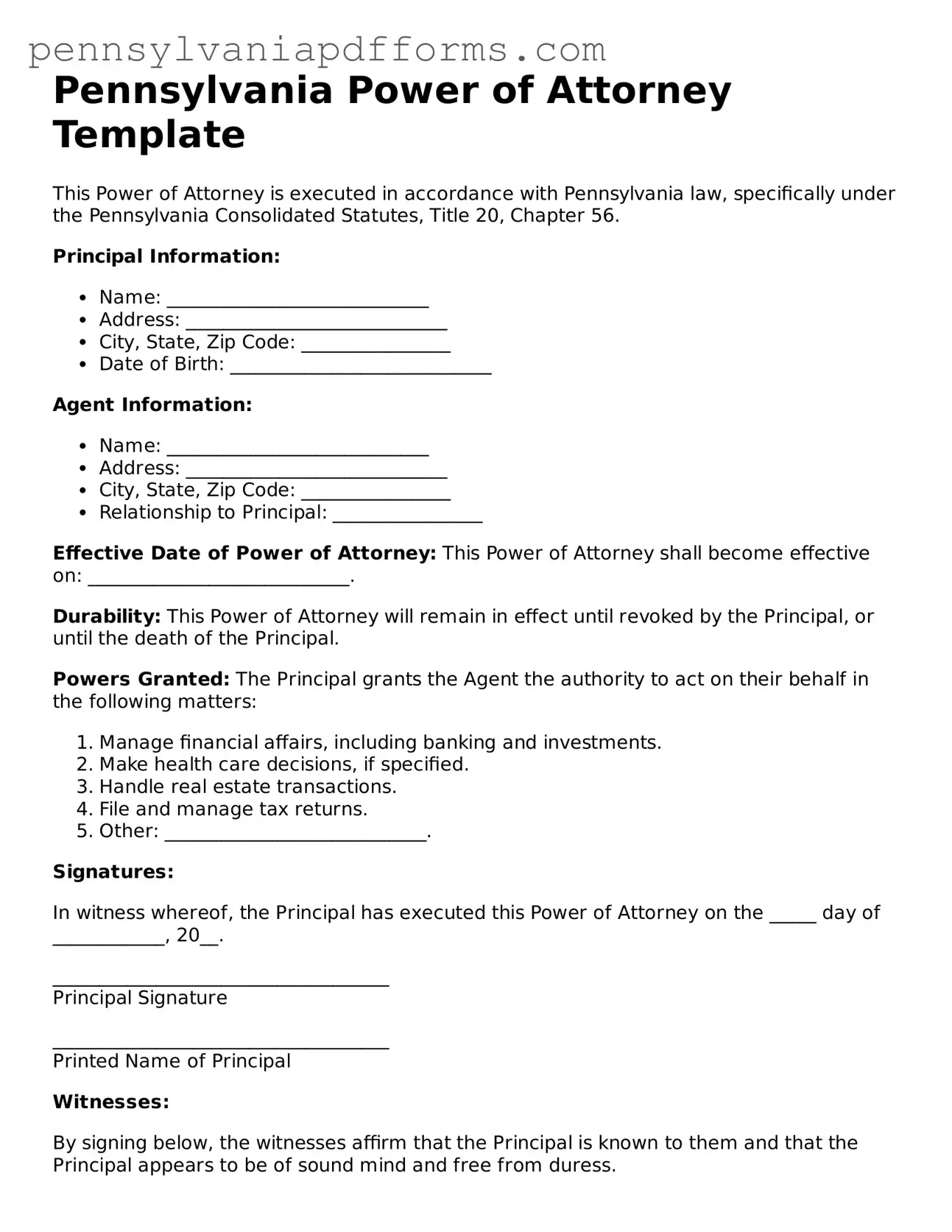Fillable Power of Attorney Document for Pennsylvania State
The Pennsylvania Power of Attorney form is a legal document that allows one person to grant another individual the authority to make decisions on their behalf. This form is essential for managing financial, medical, or legal matters when someone is unable to do so themselves. To ensure your wishes are honored, consider filling out the form by clicking the button below.
Access Editor Now

Fillable Power of Attorney Document for Pennsylvania State
Access Editor Now
Almost there — finish the form
Complete Power of Attorney online in minutes, fully online.
Access Editor Now
or
➤ Power of Attorney File
